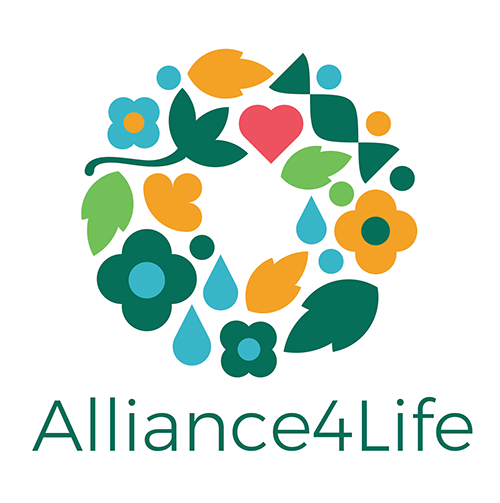
PERSONALISED MEDICINE - thematic mini-conference
The speakers and participants were scientific leaders in the field of personalized medicine, which represents an effective way to improve individual health based on family history, personal medical data, and genetic information. The aim of the participants was to create and strengthen a community of specialists, bringing together health professionals from different fields.
The seven sessions of topics subjects ranged from descriptions of revolutionary techniques, new approaches, and unique pathways in what is called personalized medicine, providing many opportunities for an extraordinary dynamic of discussions and shared information.
Human genetic variation may lead to different responses from patients subjected to the same treatments. This is why bioanalytics represents an efficient support tool for personalized medicine tools for enabling precision medicine (Osvalds Pugovičs).
Session 1 (Genetic Diagnostics and Personalized Medicine) was focused on children with presentations by Daniela Gasperikova, PhD, DSc Research Director, Biomedical Research Centre, Slovak Academy of Sciences, entitled "Genetic risk score for T1D in children with newly diagnosed diabetes" and Dana Craiu, Deputy Vice-Dean of Research, Professor at the Faculty of Medicine, UMFCD with the presentation "The role of genetics in the personalized treatment of epilepsy in children". The finding regarding Epimutation in the Mmachc Promoter as a Cause of Vitamin B12 Metabolism Disorder presented by Martina Škopková, RNDr., Ph.D. researcher, Biomedical Research Center, Slovak Academy of Sciences will have an impact on diagnosis, and genetic counseling in families with genetic diseases, as well as in the development of new therapeutic approaches.
From an engineering point of view, precision medicine involves the use of technologies to acquire and validate population-wise data (Srecko Gajovic, Professor, Medical Univ. Zagreb, Croatia: The technological entities between person-centered care and personalized medicine).
Session 2 (Engineering for Personalized Therapies) has provided important data on novel biocompatible therapeutic solution for bone regeneration (Nikola Štoković) and offered interesting information concerning the significant advancements in bone grafts and bone graft substitutes to augment spinal fusion (Aleš Hampl).
The technological entities between person-centered care and personalized medicine (Srecko Gajovic, Professor, Medical Univ. Zagreb). Technology is very active in shaping knowledge landscapes, and it is the base of tremendous advancements in the health digital environment. Technology provides the means by which the user and system can handle the contents of knowledge landscapes.
Cardiovascular disease, the leading cause of death worldwide, was assessed in Estonia in relation to a risk prediction algorithm based on data obtained from electronic health and social records (Nikita Umov). Along with the known risk factors of cardiovascular diseases (CVDs) constituting metabolic syndrome (MS), the gut microbiome and some of its metabolites, in particular trimethylamine-N-oxide (TMAO), are actively discussed. Many studies have established a link between the metabolism of specific microbes and the development of cardiovascular disease (Maija Dambrova, Professor, Head of Laboratory of Pharmaceutical Pharmacology, Latvian Institute of Organic Synthesis). Non-coding RNAs have been identified as critical novel regulators of cardiovascular risk factors and cell functions and are thus important candidates to improve diagnostics and prognosis assessment (Fabio Martelli Director of the Molecular Cardiology Laboratory at Policlinico San Donato, Italy).
In the era of personalized medicine, researchers and physicians rely on their understanding of clinical utility to assess the value of rapidly evolving genetic and genomic tests. With a constantly growing number of genetic markers with evidenced or potential clinical impact in lymphoid neoplasms, a more comprehensive genomic test is highly desirable. Thus, a new integrative, capture-based, next-generation sequencing (NGS) panel, LYmphoid NeXt-Generation Sequencing (LYNX), can detect and analyze standard and novel biomarkers in the most common lymphoid neoplasms simultaneously (Šárka Pospíšilová, Vice-rector for Research, Head of CEITEC Research Center for Molecular Medicine: Research and diagnostics of lymphoid malignancies).
Professor Dr Mircea Ivan, Indiana University School of Medicine had discovered the ancient enzymatic machinery that allows all metazoan cells to monitor O2 abundance in their environment, the resulting paper being recognized as essential for the 2019 Nobel Prize in Medicine. This work paved the way for the development of a new class of pharmaceutical agents that mimic the hypoxic response by inhibiting HIF prolyl hydroxylases, leading to one of the first few examples of noncoding RNAs being involved in adaptive responses.
University of Otago (New Zealand) researchers have used high-resolution electron microscopy images to reveal how an anti-cancer virus interacts with tumor cells, increasing its potential to save lives. Seneca Valley Virus (SVV), a newly discovered virus that infects cancer cells but not normal tissue, has become a main research project in the laboratory of Dr. Mihnea Boștină, Academic Director of Otago’s OMNI Electron Microscopy unit and senior lecturer in the Department of Microbiology and Immunology: Building viruses for fighting diseases.
How to save hours of intensive work of researchers and physicians using AI was deeply explained by Sabina Zurac, Professor and Vice Dean for Research, at UMFCD. Search in Ziehl Nielsen (ZN) colored slides with a 40X microscopic objective (0.5 mm diameter) takes hours but Artificial Intelligence can provide viable solutions in this area. Artificial intelligence-based software for the automatic analysis of ZN colored slides has reliable results, providing extraordinary savings in the pathologist's time and effort (AI in histopathology- RO experience).
Alliance4Life´s industry partners were represented by BioVendor (Veronika Chladova) and Ericsson (Zoran Topolnjak). BioVendor brings new technology fastGEN to examine the mutation status of oncomarkers in samples. Technology is based on ultra-deep sequencing of short amplicons obtained by a single polymerase chain reaction with special tagged hybrid primers. Ericsson Nikola Tesla’s health care portfolio in Croatia consists of a plethora of services and products that range from standalone systems targeting specific health care services like patient management, electronic health care records, e-referral, e-prescription up to comprehensive and integrated health care information systems like health information exchange, hospital information system or remote patient monitoring.
The conference opened doors for like-minds from all parts of the health space to step out of silos and come together for two days of stimulating, evidence-based, and informed sharing and learning.

